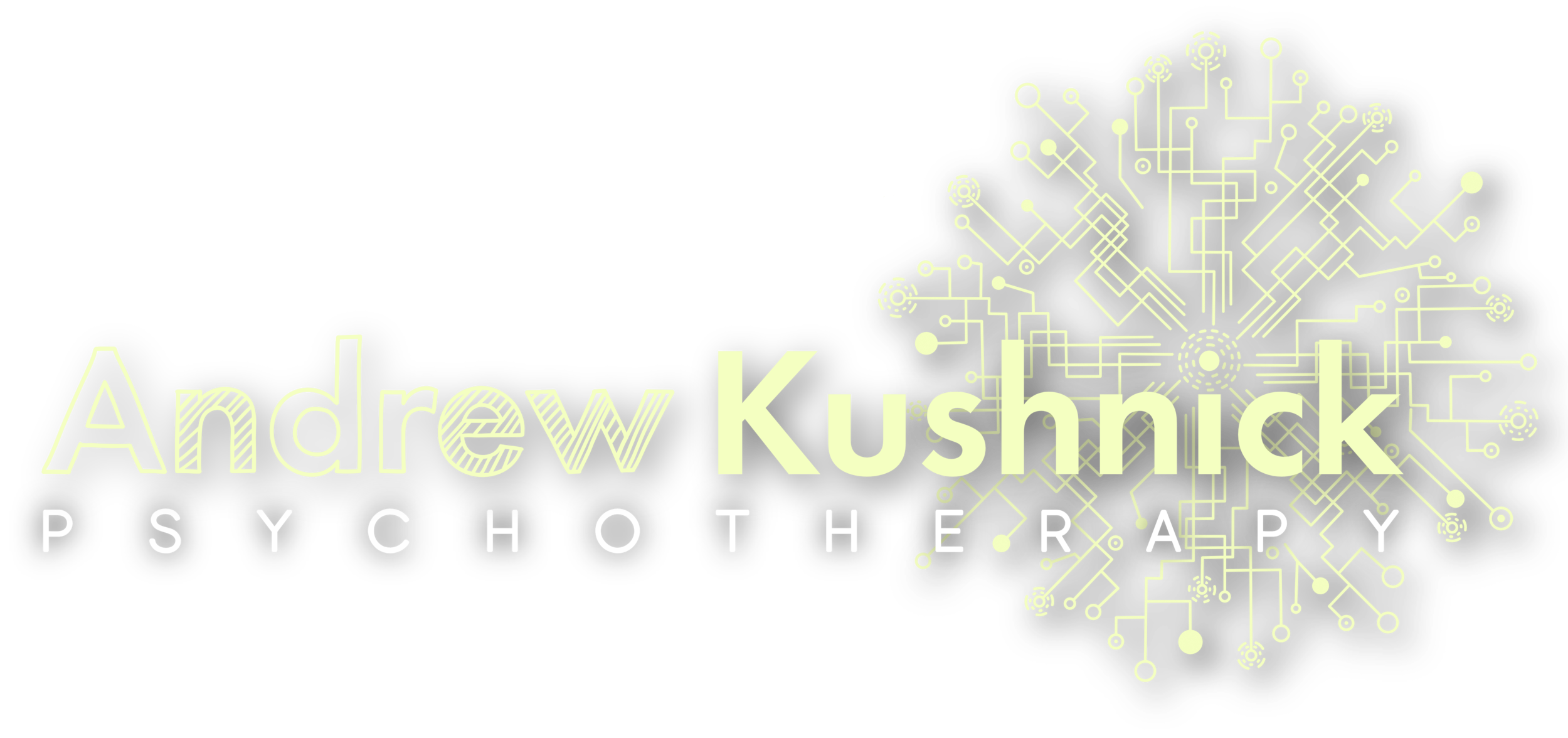Concerned About Re-Engaging in "Normal" Life? 10 Best Practices
This post may seem premature. If you’ll be quarantining for a while longer, other blog posts may be more helpful at the moment. But if you’re on the cusp of going to actual restaurants, commuting to an actual office, or hugging someone who’s outside of your “pod” (gasp!), then read on.
---
With vaccines more readily available and restrictions being lifted, the prospect of a less restricted life can be exciting. It can also be downright scary. To ensure that your re-entry into “normal” life is as smooth as possible, you’ll need some best practices, from a mental health perspective.
And here we go:
1. Acknowledge and grieve the losses you’ve experienced.
Ever since the first “shelter in place” orders, things were taken away from us.
Restaurants? Bars? Concerts? Real vacations? We had to live our lives without it.
It’s not only places or settings that we lost… Without parties and large gatherings, without being in the same place as coworkers, relatives, or acquaintances, we lost out on rewarding connections. This had so many of us feeling alone.
Our daily routines were upended and replaced. During lockdown, we lost freedoms we had taken for granted, like the freedom to be outside of our homes at any hour, hanging out with whoever we chose.
We were deprived of a sense of certainty and predictability, not knowing if we’d catch the virus, if loved ones would be okay, if grocery stores would have what we needed, if we could afford to live without steady work.
Then there are those we’ve lost to COVID. Chances are we know someone (or know of someone) who passed away in the last year.
It helps to explicitly acknowledge all of these losses. If you’ve been in survival mode for most of the pandemic, this may be an opportune time to acknowledge the sadness, the regret, and any pain they brought. Grief is a process, like a quantity that moves through us over time. Better to allow yourself to feel what’s already in there and allow your system to process it. Relief is on the other side.
2. Recognize that this has been traumatic.
Okay, not the most fun topic to think about.
But throughout the pandemic, your threat response system has likely been on high alert. We first heard about this virus called COVID-19 that was slowly spreading across continents. We were then told to “shelter in place.” Our life as we knew it was fundamentally restricted. We didn’t know how long it would last. We worried whether we’d catch the virus.
If the past year has been particularly tough for you, check out a previous post, which explored how you’d know if you experienced trauma, and what to do about it. Even if you made it through just fine, consider chatting with a loved one about what the experience was like for you.
When we go through something that’s scary or overwhelming (especially if it lasts for a while), the brain wants to make sense of what happened. By talking about what it was like for you, your brain weaves your experience into an “adaptive narrative,” storing it in the ‘ole memory banks in a healthy way.
3. Acknowledge your discomfort around social interactions.
Fewer hangouts. Fewer friend interactions. Fewer opportunities for casual banter with acquaintances and coworkers. What does this all mean?
You’re out of practice!
You know those societal conventions like making small talk, asking people about their lives, taking turns in conversation, gradually sharing a little bit more about yourself as you get comfortable with someone? These are all skills that we picked up early on, and strengthened through repetition.
When we use a skill frequently, something happens in our brain: the neural pathways associated with that skill become more accessible. If you haven’t done these things for a while, they won’t come as easily.
So when you’re heading to a gathering of people you haven’t seen, recognize this within yourself. Take it slow. You’ll get back into the groove, but it’s totally okay for it to feel kinda strange.
4. Understand if others still “socially distance.”
Be prepared for unintentional disses.
Our brains have grown accustomed to social distancing. As you re-engage, don’t be surprised if people forget to greet you properly. If your friends who normally hug you hold back for a while. Same goes with saying hello, asking about you, asking you to make plans, etc. We’ve all been out of practice.
At work, people may be even more vigilant and act differently, given lingering anxiety about the virus and its variants. Especially if your office has social distancing protocols in place.
Remember that it’s not personal. No one’s saying that you’re gross or have the cooties… it’s just fear. That should change with time.
The amygdala’s job is to scan your environment for threats, and keep us safe. It may take a while for the amygdala to “learn” a new, lower level of threat.
5. Forgive those who have been distant.
We haven’t been ourselves. The pandemic led so many of us to feel stressed, overwhelmed, demoralized, lacking energy. Every day blurred into the next. We were in survival mode, doing whatever we could to make it through.
Everyone was affected in some way, even those who seemed to have it all together. Social media posts may have painted a rosy picture, but that can be deceiving.
Now that the outlook is slowly brightening, seize this opportunity to repair strained relationships. That means forgiving unreturned texts, DMs, emails, phone calls, etc. Or understanding why someone was cranky with you, brushed you off, or dropped out of touch during a time of unbelievable stress.
If there ever was a time for blanket forgiveness, it’s now. Not only will it preserve your relationships, but studies show it’s good for your health.
6. Accept that the world has changed.
Surely you’ve heard people say, “Can’t wait ‘til we go back to normal.” And perhaps you’re chomping at the bit to get back to your old routines.
But those old routines may or may not reflect who you are today. In pandemic times, you’ve likely picked up new ones, like taking more walks outside, going on road trips, cooking up some good stuff, etc.
Consider what works for you today, not who you were in early 2020. This applies to your personal life and your professional life.
The people in your life may be re-thinking what’s important to them too. You may have to adapt to the new, post-pandemic version of them. As we’re all evolving over time, it’s healthy to revise your conception of who that friend is, who that significant other is, etc.
7. Go all in on “weak ties.”
Some of us hate small talk, and would rather eat some glass than make meaningless banter about how their weekend was.
For better or worse, the pandemic suspended most opportunities for small talk.
Without offices, gyms, yoga studios, indoor restaurants, etc., our in-person interactions have been limited to those we knew well - significant others, close family, or close friends. We’ve been removed from our “weak ties” - casual friendships, acquaintances, people we encounter in our everyday lives.
In a recent study from Harvard Business Review, workers reported that small talk at the office generated more positive emotions and less burnout. Other studies show that these “weak ties” contribute to our well-being.
Now that your world is about to expand, say “hi” to the barista, the bus driver, the neighbor, the coworker you barely know. Besides brightening their day, you’ll be aiding your own emotional health.
8. Revel in (and use) nonverbal cues.
Now that we’re slowly 86ing the masks, a world of information has just been unveiled!
In the same actual room (especially maskless), you’re better able to pick up on a grimace, a smirk, or some other facial expression. You’re more able to hear a sigh, a grunt, or other sounds that might be hidden over Zoom. You’re privy to body language that indicates how someone really feels. Positive or negative, it’s information.
Is your manager at work actually pleased with you? Does your coworker actually agree with the idea that you just proposed? Is your significant other needing something but reluctant to tell you? Is your friend a little upset and needing some support?
Freed from the constraints of a video screen, in which you’re usually viewing someone from the neck up, you’re privy to more more context.
When you’re able to notice and make use of these nonverbal cues, communication becomes clearer. You can ask questions to clarify or make a thoughtful comment. You’ll have a better understanding of that other person. You’re more likely to get your needs met.
9. Find your North Star.
There’s nothing like a worldwide pandemic to show us how precious life is.
When we’re in our routines time passes by, and we get locked into these grooves, these patterns, doing our thing. We may feel like there’s not enough hours in the day. Certainly not enough time for big-picture thinking.
Now that your focus is less on survival, consider using this occasion to orient yourself.
Take a moment to reflect on what matters to you. How do you want to spend your time these days? Who are the important people in your life right now? Where are you in your professional life? What do you want to accomplish, without the huge pandemic-related obstacles?
Consider this your wake-up call. Life’s too short to put it all off. Whether it pertains to your career, love life, family life, social life, etc., point yourself in the direction that you want to go. For help on how to do this, read this.
10. But go easy on yourself in jumping back into things.
You might be itching to do everything you weren’t able to do during pandemic times, like right away. Epic vacations! Crazy nights out! Total debauchery!
Easy there, partner.
Keep in mind that you’re out of practice. And only recently, lots of folks were in a place of stress, anxiety, depression, and even trauma.
You’ll want to reduce overwhelm, and train your brain to adjust to this new life. Don’t over-commit. Whether it’s social plans, commuting, vacations, etc., gradually ease back into it.
It’s super-exciting to be free to roam again. But at the risk of sounding like a buzzkill, remember that it won’t be all euphoria, all the time. By dipping your toes in, you’ll enjoy the new experiences and appreciate your newfound freedom even more. Now go forth and prosper!
---
Author’s note:
At the time of this writing, disparities in access to COVID-19 vaccines are still all too common. As recent data indicates, this inequity is often correlated with race and ethnicity. If you’re fortunate enough to be “integrating into post-pandemic life,” remember that vulnerable populations (even right here in California) are not as fortunate, and contact your representatives to demand change.
If you found this post helpful and want to see more, please “like” Andrew Kushnick Psychotherapy on Facebook!
--
Andrew Kushnick is a Certified EMDR therapist in downtown San Francisco. As a former practicing attorney, Andrew’s approach is practical and concrete, using science-based and evidence-based methods.Video appointments are available during afternoons and evenings. To schedule a complimentary 15-minute phone consultation, email andrew@andrewkushnick.com.

